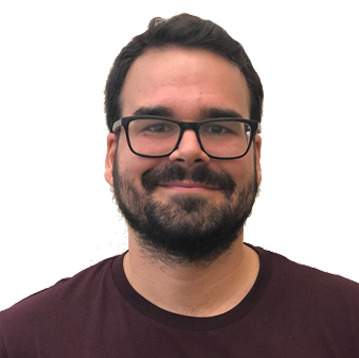
Postdoctoral Fellow Center for Computational Oncology
Guillermo holds a coupled BSc & MSc degree in Civil Engineering from Universidade da Coruña (UDC, Spain), where he graduated with honors receiving multiple awards from the School of Civil Engineering, UDC, and the Galician and Spanish governments for his outstanding academic track. Guillermo also obtained his PhD from UDC under the supervision of Prof. Hector Gomez within the ERC Starting Grant MuSIC (Modeling and Simulation of Cancer Growth). Then, he was a postdoctoral researcher at Prof. Alessandro Reali’s lab at Università degli Studi di Pavia (Italy). He was also a recipient of a Peter O’Donnell Jr. Postdoctoral Fellowship at the Oden Institute at UT Austin, under the supervision of Prof. Thomas J. R. Hughes and Prof. Thomas E. Yankeelov). Additionally, he was awarded a Marie Skłodowska-Curie Individual Fellowship to carry out the project PICModForPCa (Personalised Image-based Computational Modelling Framework to Forecast Prostate Cancer) between the Oden Institute at UT Austin and Università degli Studi di Pavia (Italy). Currently, he is a "Fundación La Caixa" Junior Leader Postdoctoral Researcher at the Health Research Institute of Santiago de Compostela (Spain), while also being an affiliate researcher at the Oden Institute.
Guillermo's research focuses on organ-scale, personalized models of prostate cancer growth and treatment response, as well as on the construction of powerful isogeometric methods to run computer simulations of these models over patient-specific prostate meshes extracted from magnetic resonance images. He had a central role in the derivation and isogeometric implementation of the first tissue-scale, personalized model of prostate cancer growth. He also extended this model to introduce the inhibitory effect of mechanical stresses generated by tumor growth and coexisting benign prostatic hyperplasia. His computational work also includes the derivation of predictive models of prostate specific antigen (PSA) dynamics after external radiotherapy of prostate cancer to early identify recurring patients, the analysis and optimization of combined cytotoxic and antiangiogenic therapies for advanced PCa, and the study of 5-alpha reductase inhibitors for chemoprevention of prostate cancer growth through the balance of mechanical relaxation and apoptotic upregulation. Additionally, Guillermo is working on an image-based, organ-scale computational model of neoadjuvant chemotherapy of breast cancer in which the tumor cell proliferation is explicitly linked to the patient’s drug protocol, also including potential synergies between concomitant drugs. This work will use in vitro results of combined drug effects on breast cancer cell lines to calibrate simulations of tumors in vivo.